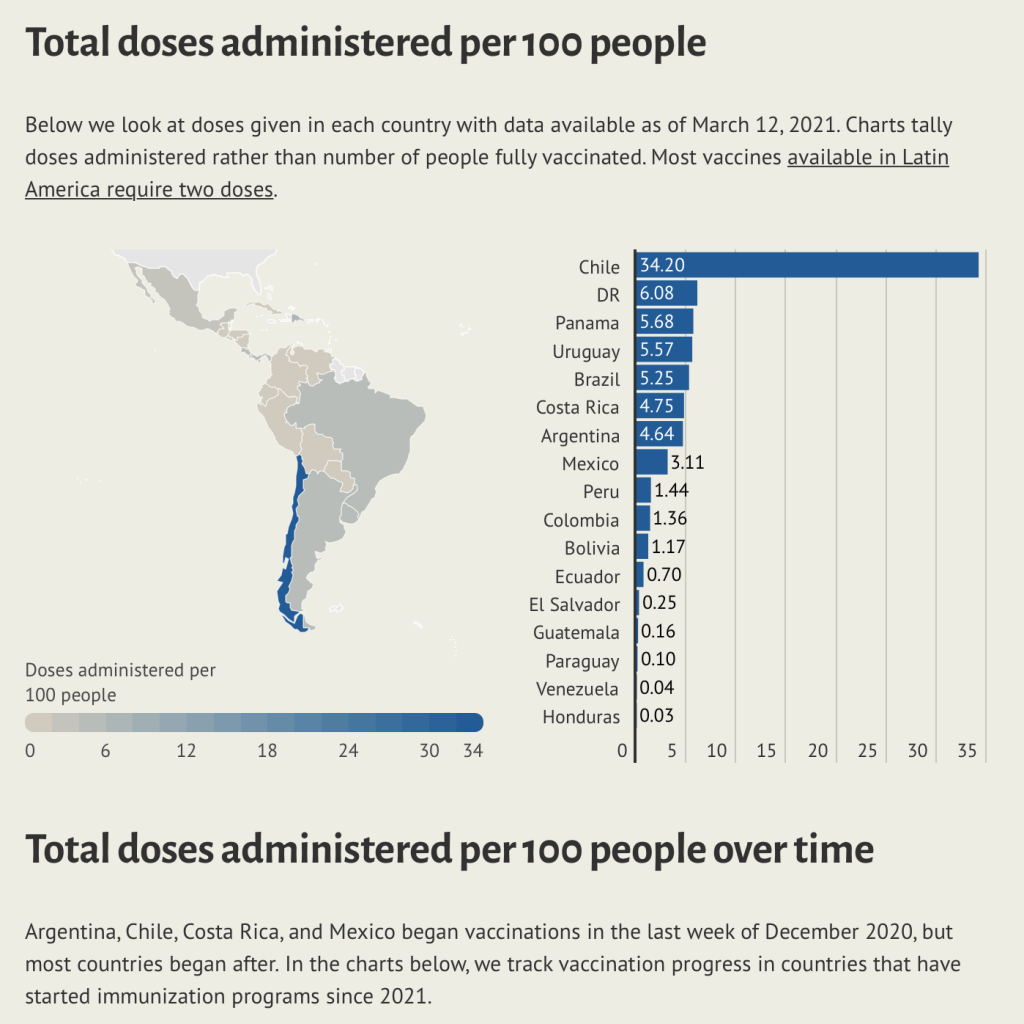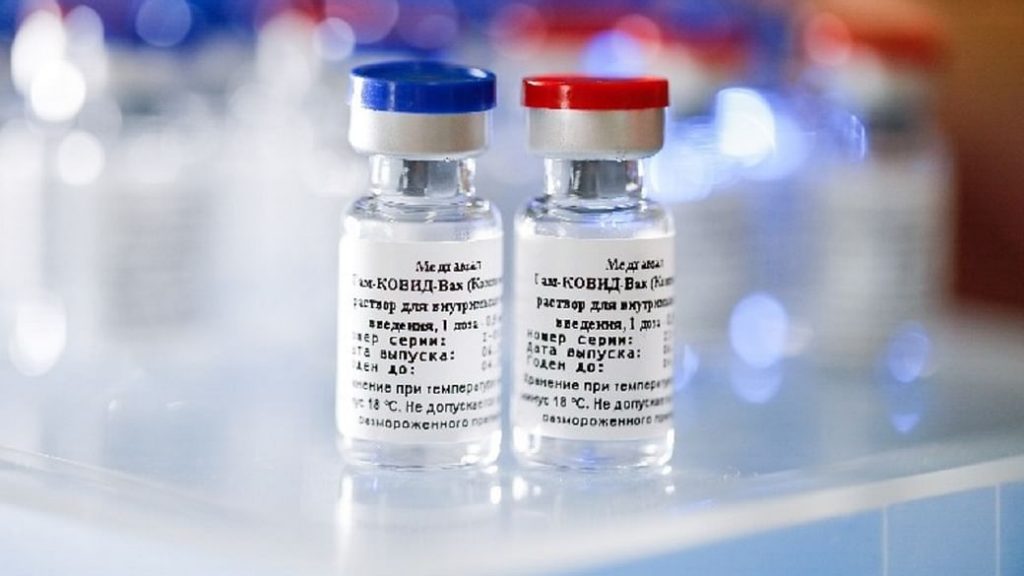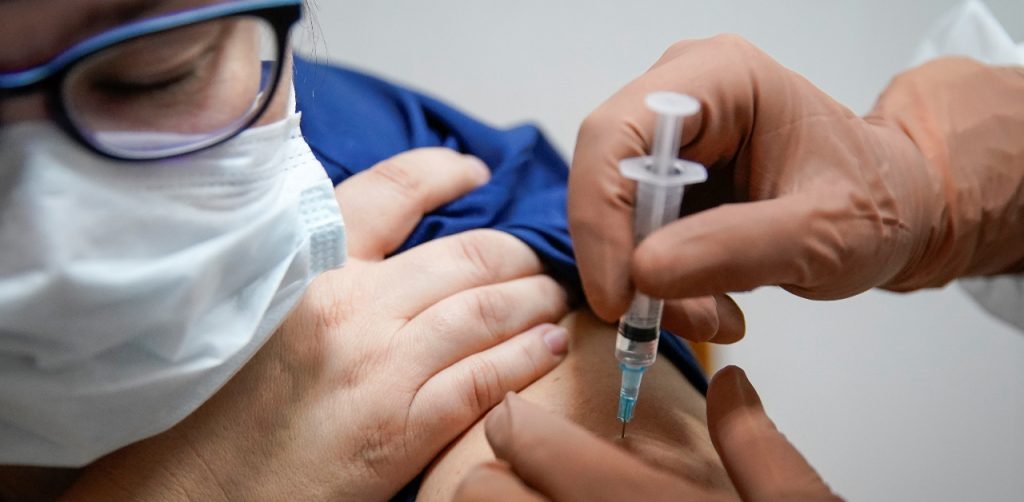Delay in Covid-19 vaccine supply to Paraguay has made the political crisis in the country even worse. The ongoing crisis is one of the most serious in Paraguay since democracy was restored in 1989 after the fall of the dictatorship of Alfredo Stroessner. Paraguay ordered and paid for 1 mln. doses of the Russian vaccine, but Human Vaccine LLC (affiliated with RDIF) delivered the first 4,000 doses and has not yet provided Paraguay with a supply schedule. Russia’s vaccine arrived in Paraguay on February 19. Meanwhile, Chile donated 20,000 to Paraguay from China’s Sinovac.
Paraguay is going to get another 4.3 million doses under the COVAX program. On March 19, 34 thousand doses of Astra Zeneca vaccine have already arrived in Asuncion.
Coronavirus vaccination in Paraguay started on February 22, but the number of doses that came to the country did not allow for the active campain. Paraguay’s government was negotiating with Moscow to speed up the supply amid the surge in cases in the country, but Russia was unable to supply the vaccine in time, so that the inoculations were not made as planned, making the matters in Paraguay worse.
The case of Sputnik V supply to Paraguay speaks for the existing reputation risks for Russia as one of the world suppliers of its own vaccine. Failure to inoculate the people in Paraguay over the delay in Russia’s vaccine supply raised the epidemiological risks for Paraguay, and also stirred up the political unrest in this country.
The Kremlin, represented by the direct investment fund, is seeking to sign the maximum number of contracts for Sputnik V supplies, being aware that production facilities are no longer ready to fulfill the existing orders without violating the technology, the diplomatic circles say. This fact is indirectly confirmed by the developments over Russia’s vaccine supply to Argentina, where just 400 thousand doses were received with a population of one million people.
That stirred up the political crisis in the country amid popular protests, angry with the level of response to COVID-19.

Number of people inoculated – the total number of people who received at least one shot.
Total vaccinated – the total number of shots (the number of single shots may not be equal to the total number of people vaccinated – depending on the vaccination protocol, people may receive multiple shots).
Vaccination failure in Paraguay comes amid violent political unrest in the country. In recent weeks, Paraguay has been the scene for a series of massive street protests that have, inter alia, demanded President Mario Abdo Benítez and his government to resign due to the health crisis.
In an attempt to contain the anger that is being expressed on the streets, several ministers were fired, but so far this has not stopped the protests. On March 6, health minister Julio Mazzoleni announced his resignation, a day after the Senate approved a declaration which called on him to resign for his role in the mismanagement of the pandemic. On March 10, the president of the Social Welfare Institute (IPS) Andrés Gubetich resigned amid a corruption scandal linked to the diversion of essential medicines.
According to the media, the explosion of hatred among the population, in a country that has 4,000 doses of vaccines for a population of seven million people, can be explained by bad management in the face of the pandemic of the new coronavirus.
Opposition parties wanted Mr Abdo to resign and call new elections. They accused his right-wing government of widespread corruption.
In Paraguay, from 3 January 2020 to 2:27pm CET, 21 March 2021, there have been 190,499 confirmed cases of COVID-19 with 3,662 deaths, reported to WHO.


However, President Mario Abdo Benítez survived an attempt in Paraguay’s congress to impeach him. The Chamber of Deputies, which is dominated by his governing Colorado Party, voted 42 to 36 to reject impeachment. President’s party, Colorado, is divided between a smaller group, loyal to the president, and a larger group of parliamentarians of the current Honor Colorado, allied to former President Horacio Cartes. It was Honor Colorado who supported Abdo Benítez in 2018 and made sure he did not fall after a scandal related to the binational company Itaipu, hydroelectric dam, which was widely seen as unfavourable to Paraguay. While Cartes may have saved Abdo for now, he may yet deliver a “coup de grâce” before his term ends in 2023.
The developments in Paraguay confirm the assumption that Russia chooses the countries the most hit by the pandemic and amid unrest to supply its vaccine to. This allows being tough on the governments of such countries to strong-arm them to purchase a vaccine that has not been approved by regulators in the EU, the U. S. and Canada over the lack of transparensy, fast registration and incomplete clinical testing.





